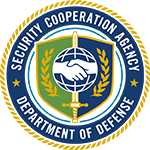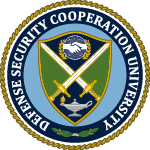Sponsored Research
The Defense Security Cooperation University (DSCU) promotes the production of new evidence that will inform the practice of security cooperation. DSCU sponsors research that meets standards of scientific rigor and aligns substantively with Department of Defense priorities. DSCU’s Young Institute executes the sponsored research program and is committed to ensuring that findings are shared widely to advance the study of security cooperation and evidence-based decision making.
Research Proposals
DSCU is currently accepting grant proposals for theoretical, empirical, and data-building research that develops the body of knowledge on security cooperation. The grants competition is open to all researchers anywhere in the world. A Notice of Funding Opportunity (NFO) is posted on Grants.gov, with details on project eligibility, research priorities, and the application process.
Funded Projects
Following rigorous, multi-round reviews of applications, DSCU has awarded the following grants and cooperative agreements for research on a wide range of security cooperation topics. DSCU is able to sponsor these research projects due to support from both appropriators and authorizers in Congress to fulfill the mandate in 10 U.S.C. 384.
DSCU Research Grants
Project Title
Research Team
The Value Arms Ecosystem: New Data on Stockpiles, Production Capacity, and Transfers
Dr. Vasabjit Banerjee (University of Tennessee, Knoxville) and Dr. Benjamin Tkach (Mississippi State University)
Contested Logistics and Combined Operations: Lessons from Allied Operations in World War II
Dr. Ryan Grauer (University of Pittsburgh) and Dr. Rosella Cappella Zielinski (Boston University)
Exporting Might and Right: Security Assistance and Liberal International Order
Dr. Renanah Joyce (Georgetown University)
Disinformation and Security Dynamics in Partner States Pakistan and the Philippines
Dr. Matthew Rhodes-Purdy and Dr. Amira Jadoon (Clemson University)
Formal and Informal Security Assistance: Improving Aid and Training Programs
Dr. William Reno (Northwestern University), Dr. Ryan Burke (U.S. Air Force Academy) and Lt Col Dr. Jahara Matisek (U.S. Naval War College)
NATO Joint Acquisition History
Mr. Robert Foxcurran
Measuring Oversight: A Global Dataset of Defense Institutions
Dr. Louis Alexandre Berg (Georgia State University)
DSCU Cooperative Agreements
Project Title
Research Team
The Value Proposition: Why Partners Choose the U.S. or Our Competitors
Dr. Seth Jones, Dr. Daniel Byman, and Mr. Alexander Palmer (Center for Strategic and International Studies)
Contact
If you are interested in learning more about DSCU-sponsored research, please sign up here. To contact the Grants team, email dsca.dscu.grants@mail.mil.
The views and opinions that appear on the Brigadier General Charles Young Institute for Security Cooperation Research and Lessons Learned site are those of the author(s) and do not necessarily represent the views of DSCA/DSCU or its organizations. The appearance of external hyperlinks does not constitute DSCA/DSCU endorsement of the linked websites, or the information, products, or services therein.
The DSCU Young Institute does not endorse nor advocate published materials. The DSCU Young Institute mission is to expand the intellectual foundations and promote learning that improves the practice and advances the field of Security Cooperation.

